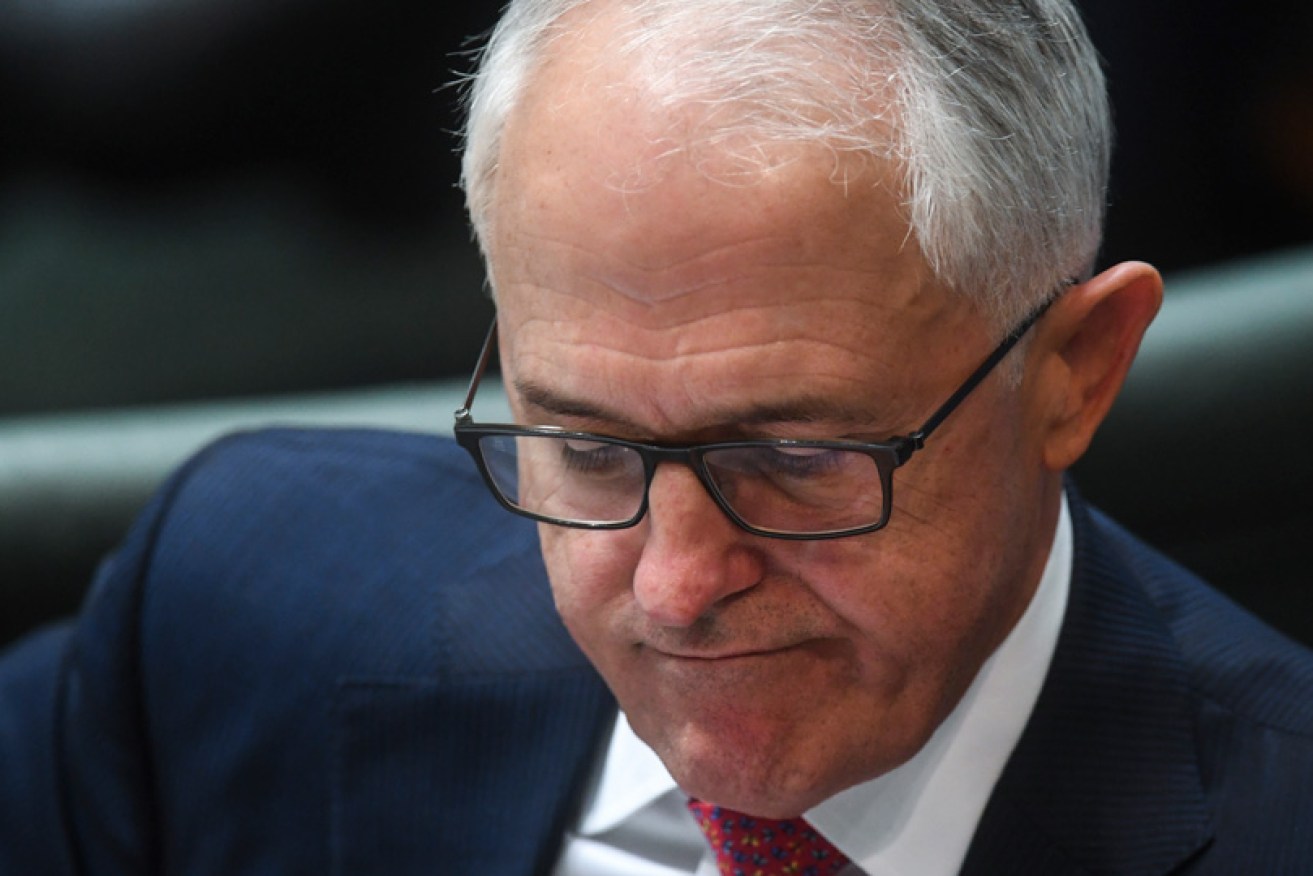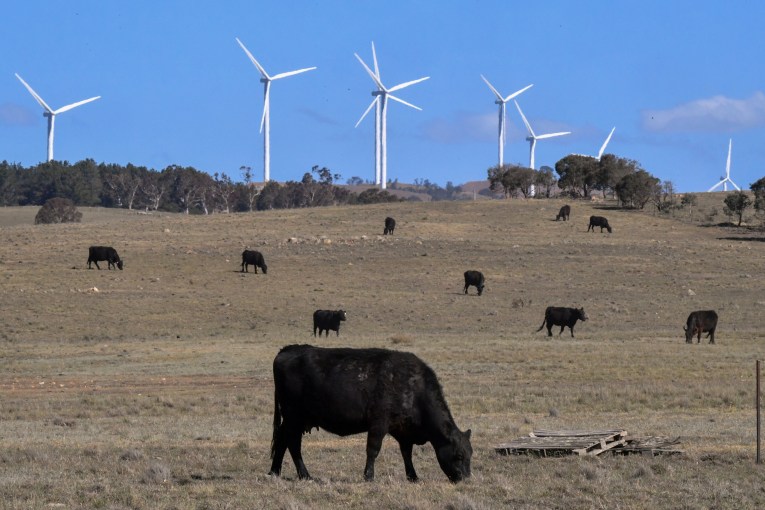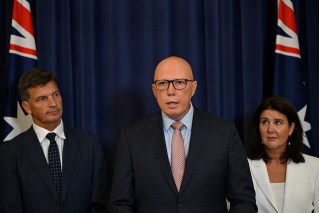Polling ‘horror story’ for the Prime Minister


Battered by critics within his own party, Mr Turnbull is facing his toughest crisis yet. Photo: AAP
Considering what has happened in Australian politics over the past fortnight, Malcolm Turnbull might be grateful Monday’s Newspoll wasn’t worse. But let’s be straight, the poll was terrible for the Prime Minister.
This was Mr Turnbull’s 38th losing Newspoll, with the two party-preferred vote sitting at 51-49 in Labor’s favour for the fourth fortnight in a row.
The Coalition’s primary vote went down two points to 37 per cent, while Labor’s went down one point to 35. Both changes were within the poll’s margin of error.
But the real horror story for the Prime Minister was in the personal approval ratings. Satisfaction with Mr Turnbull dropped a whopping six points in a fortnight, leaving him with a net satisfaction rating of -19 while Bill Shorten’s net score improved one point to -24. Mr Turnbull also dropped four points as preferred PM.
We won’t know until we see subsequent polls whether this is an outlier or a troubling trend for Mr Turnbull. On the face of it, it looks troubling.
It’s no coincidence that the last time the Coalition had a big drop in the opinion polls, back in February, the Barnaby Joyce saga was playing out on our screens.
Last week, as Newspoll was preparing to survey voters on the weekend, we were forced to revisit that sorry tale with Mr Joyce promoting his tell-all book and unloading on the PM for saying stern things about his bad behaviour.
Then there was the big fizzer that was Friday’s meeting of the country’s energy ministers, which barely managed to take the next step in finding a way that everyone can agree upon to reduce power costs while cutting emissions. It may make good policy sense to take more time to develop the National Energy Guarantee, but voters were led to believe that Friday was a day for final decisions to be made. On that measure, the Turnbull government failed to deliver.
But, in looking at this week’s Newspoll, we should remember the Super Saturday by-elections took place two weeks ago. According to the Newspoll taken the same weekend, the PM’s personal approval ratings at the time were not fabulous but certainly better than they appear to be now. Could the big drop in the PM’s approval ratings be because he’s not shown a shred of contrition in response to the by-election outcomes, particularly the drubbing of the Coalition in Longman?
It’s traditional after a big protest vote has emerged at a by-election for the Prime Minister of the day to say “we hear you”, “we understand why you’re unhappy” and “we’ll change/do better”.
Mr Turnbull has done nothing of the sort. Instead, the PM and his colleagues went to great lengths to dismiss the swings against the government as nothing more than “the average” swing expected at any by-election.
This lack of humility was again on display in question time on Monday, even as the Opposition used its recently re-elected MPs to pepper the PM with questions about his spending priorities. Like a wind-up doll with a limited repertoire, Mr Turnbull and the Treasurer, Scott Morrison, simply kept harping on about the economic benefits that would (eventually) flow from promised tax cuts.
This would have been a slap in the face for voters who lodged a protest vote against the government in the by-elections, but had still intended to vote for the Coalition at the federal election if it mended its ways. Their anger at Mr Turnbull’s seeming deafness to their message could be the reason for the slide in the PM’s approval. Of course this theory begs the question – why are voters unhappy and what do they want PM Turnbull to change?
It might not be enough for the government to scrap tax “handouts” for millionaires and the big end of town if voters actually want to see more improvements in hospitals, schools, pensions and the basic wage.
Cost of living is now the No.1 issue for voters, according to the latest Essential Poll on this question. It’s a real and pressing concern, not only for the low-income voters who traditionally support Labor, but also the middle-income voters who are traditionally swinging voters and whose incomes have not kept pace with their basic expenses.
Together, these two groups will decide which party wins the next federal election. Labor leader Bill Shorten has devoted a lot of time (and taxpayers’ dollars) to ensuring these voters feel consulted. Mr Shorten has reportedly made more than 50 trips to Queensland since the 2016 federal election, holding 18 town hall meetings in that state. He’s also reportedly visited another key state, Western Australia, 16 times over the same period.
Meanwhile, Malcolm Turnbull doesn’t appear to have anything like a similar campaign aimed at making real connections with actual voters. This is a serious flaw in the Coalition’s campaign strategy, and no amount of whinging about the resources available to Labor will change it.
In fact, there’s only one thing that Mr Turnbull could do to address what appears to be foreshadowed in this week’s Newspoll – that the last Liberal voters are preparing to abandon the sinking ship.
The PM must find at least a shred of humility within himself and genuinely apologise to the Australian people for not listening to the protest made in Longman. He must also make an obvious effort to make the necessary changes to address voter concerns.
The PM might believe that Tony Abbott lurking at the back of the Coalition party room is his biggest problem. But it’s the wrath of the scorned voter that should really be occupying his mind.








